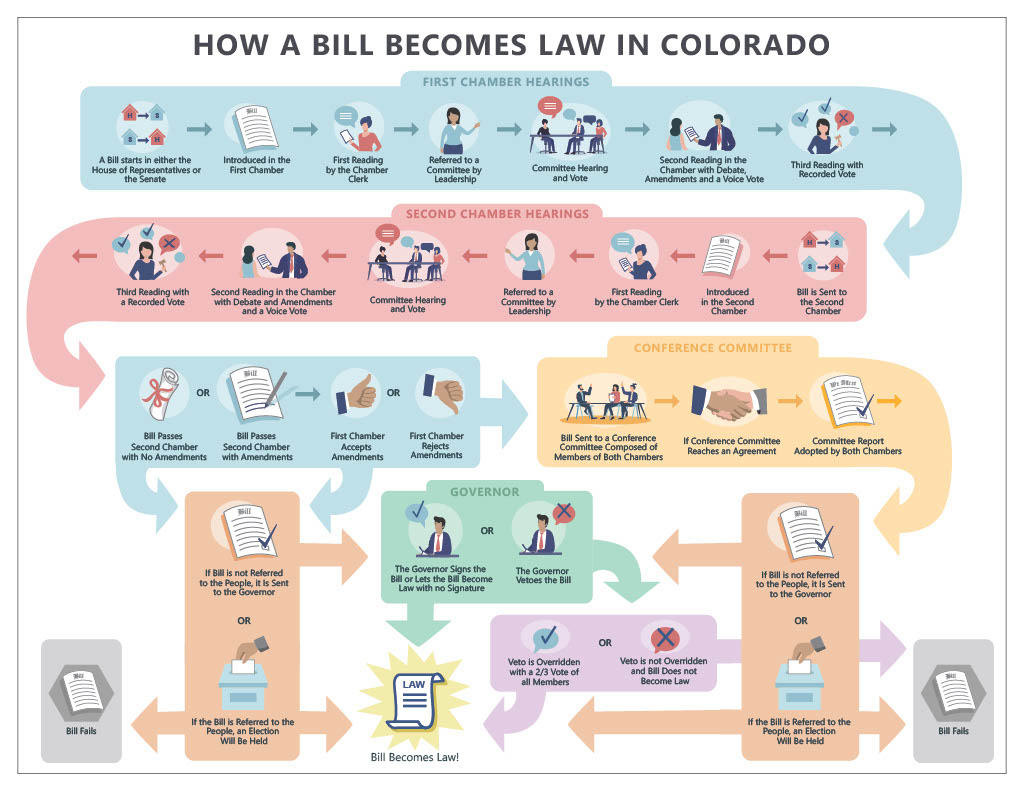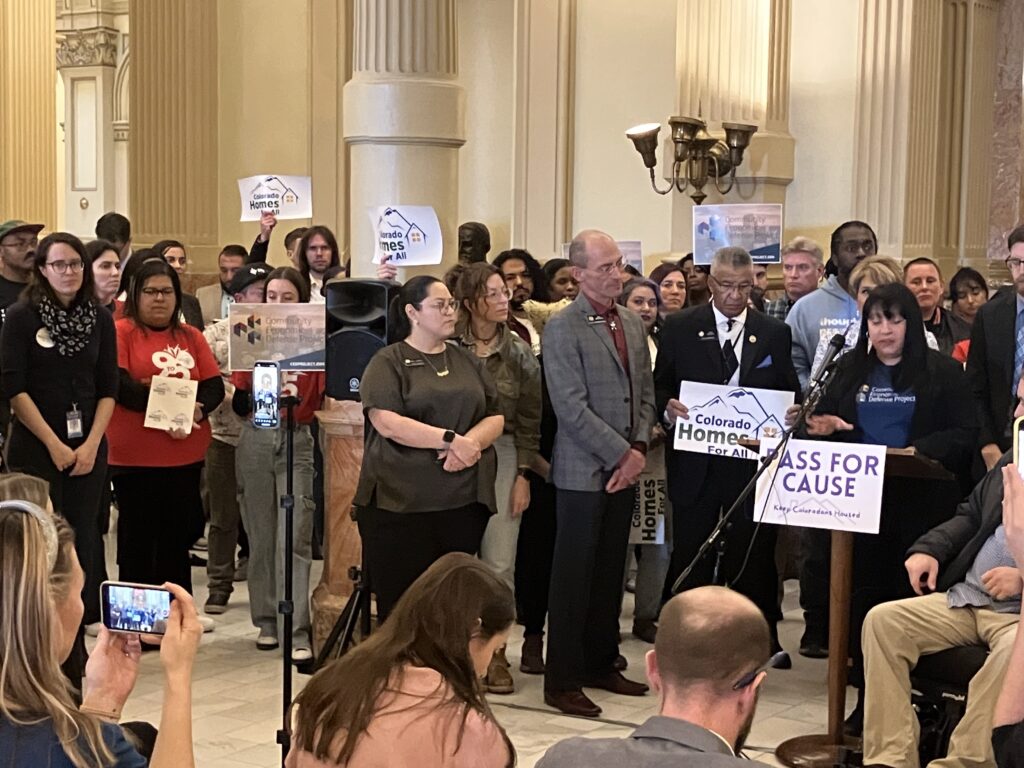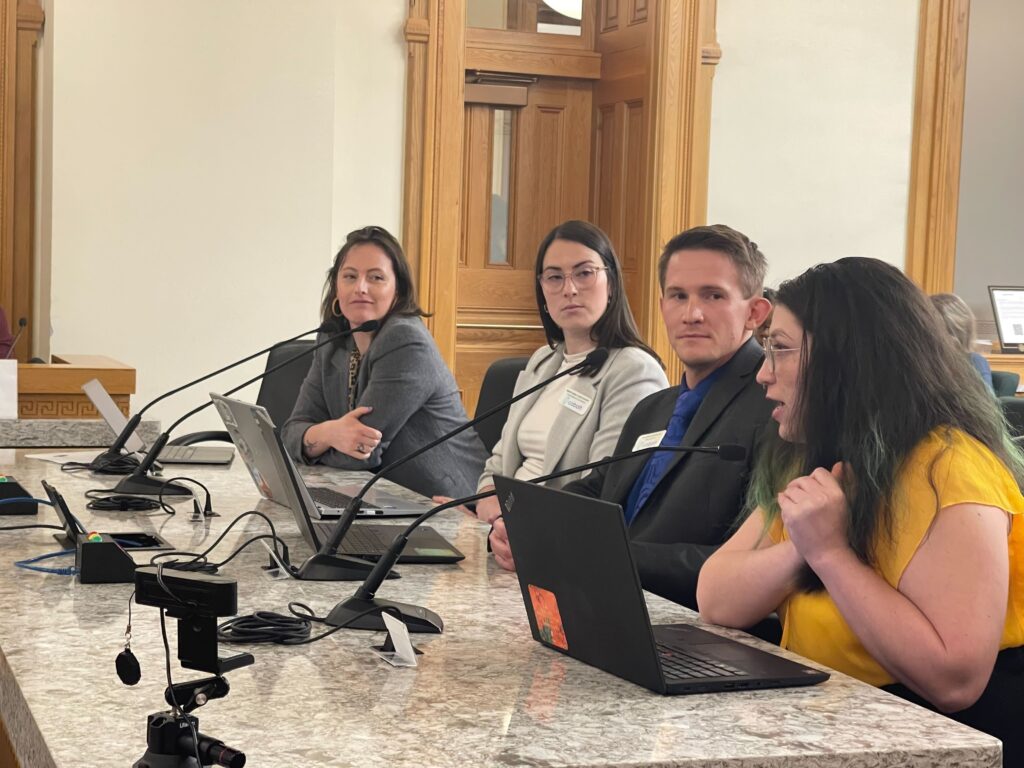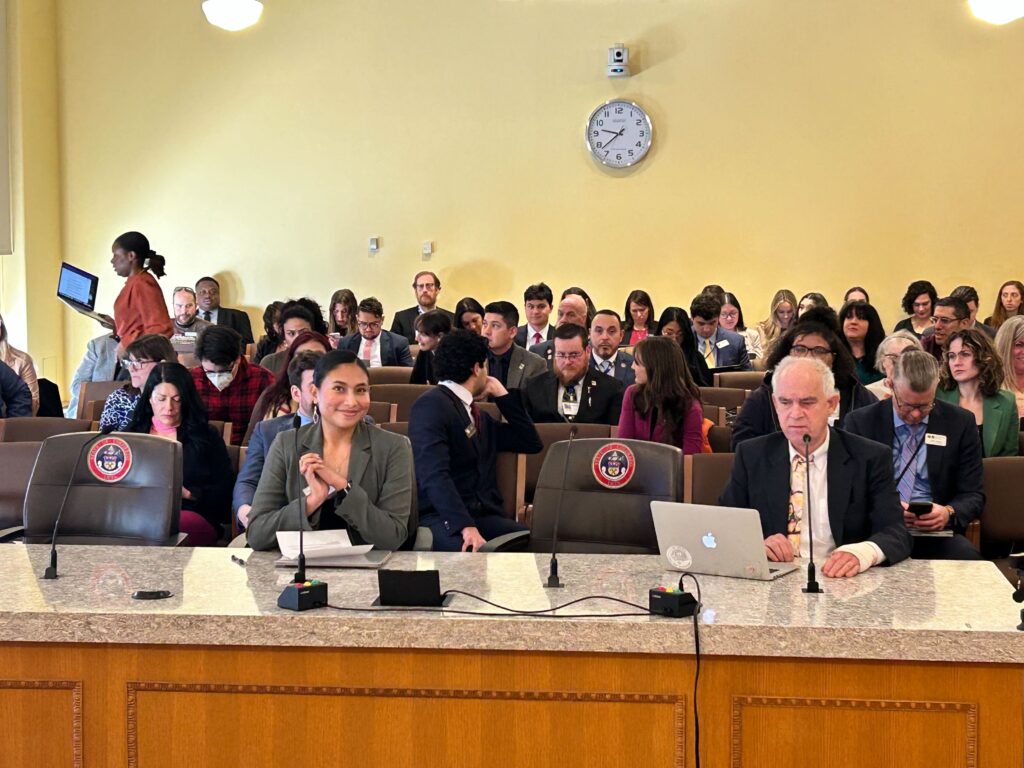
Legislators have 120 days each year to make progress on the Youth Agenda, and it’s our job to make sure it’s their priority. Bill-making is an extremely nuanced and thorough process. You can read more about how a bill becomes a law on the Colorado General Assembly’s website, but we recommend saving your eyes from glazing over and looking at this handy-dandy chart and video from the Office of Legislative Legal Services.
Advocating in the legislative session is a choose-your-own-adventure vibe. You can get involved in the bill-making process in several ways (listed in order of increasing effort – you choose what works for you!).
Stay updated.
The Real Advocates will keep you updated on our Youth Agenda policy priorities! Follow our Instagram and sign up to get our emails so you know when to take action on the issues you care about.
There are always a lottttt more bills introduced than the ones we talk about. Some are great; some are dumb, pointless, and scary. You can find all of them on the General Assembly’s website. If you want to stay in the loop on a specific bill, bookmark the link! As the bill progresses, you can find updated bill drafts, amendments, and where it’s headed next on its journey through the legislature.
You can also tune into the House and Senate chambers, along with all public committees (sometimes it gets real weird)! Just click this link to find what you’re looking for. If you prefer video over audio-only, the Colorado Channel is your go-to for anything happening in the full chambers! The Colorado Channel doesn’t stream committees, which is where the “Live Legislative Audio” section comes in. You can also use that section to listen to past hearings and sessions!
Contact your state Senator and Representative.

Find your state legislators by putting in your address at this link. Bonus points if you memorize their name and add them as a contact in your phone! Call ‘em, beep ‘em, send ‘em a message, set up a meeting. Don’t be afraid to tell them what you reallllllyyyy think (especially about taxes). You’ve got a lot of ways to get in touch and urge them to support or oppose a bill you’re passionate about.
Remember: YOU are their constituent. That means they are responsible for addressing YOUR concerns (and if they’re not, let us know so we can have a niceeee lil’ convo with ‘em). You don’t need any professional experience to advocate for your community. All you need is life experience and a desire to make change!
Show up.
Lobby days at the Capitol are when groups of people supporting a cause flood the dome to talk to their legislators… and there is usually free food! These are a great way to dip your toes into the process with like-minded people.


Lots of rallies happen during legislative sessions, too, to make sure lawmakers know what our communities care about.
Testify on a bill when it’s in committee.

The most impactful way to make change is sitting in front of a group of legislators and telling them your story. You don’t have to be the expert on every detail of the bill, that’s their job; Your lived experience is more than enough.
It might be intimidating to sit in a formal room and wait for your turn to speak, but remember that legislators are everyday people and they’re likely bored, too (we’ve witnessed accidental naps and scrolling sessions in hearings). The best lawmakers give you a thumbs up for encouragement — plus, you’ll always have a pack of Real Advocates at your back.

The deets: You’ll have about three minutes to speak during a committee hearing, so it’s best to keep your story to one page. Be prepared to cut more just in case a lot of people sign up to speak because they might cut down on testimony time.
You’ll typically have to wait (sometimes a very long time) until the bill is scheduled for a committee hearing before you can sign up to testify. You’ve got three options:
- In person: *Cue the Jeopardy music as you await your turn at the mic* This option is GREAT if you’re able to spend some time at the Capitol! Legislators love listening to real people’s testimonies, and you can even try to chat with them after the hearing (unless they’re running to another one). Example below!
- Remotely via Zoom: This option is GREAT if you work from home or can stay online for a few hours but can’t make it to the Capitol building! Or, if you’re sick at home like Senior Policy Manager Kiyana Newell.
- Submit written testimony: This option is GREAT if public speaking makes you want to throw up! It doesn’t have to be long – just focus on getting your point across. The one downside with submitting written testimony is you can’t guarantee the committee members will actually read it (infuriating, right?). Pair that written testimony with an email and phone call, and they should hear or see at least one of them!
